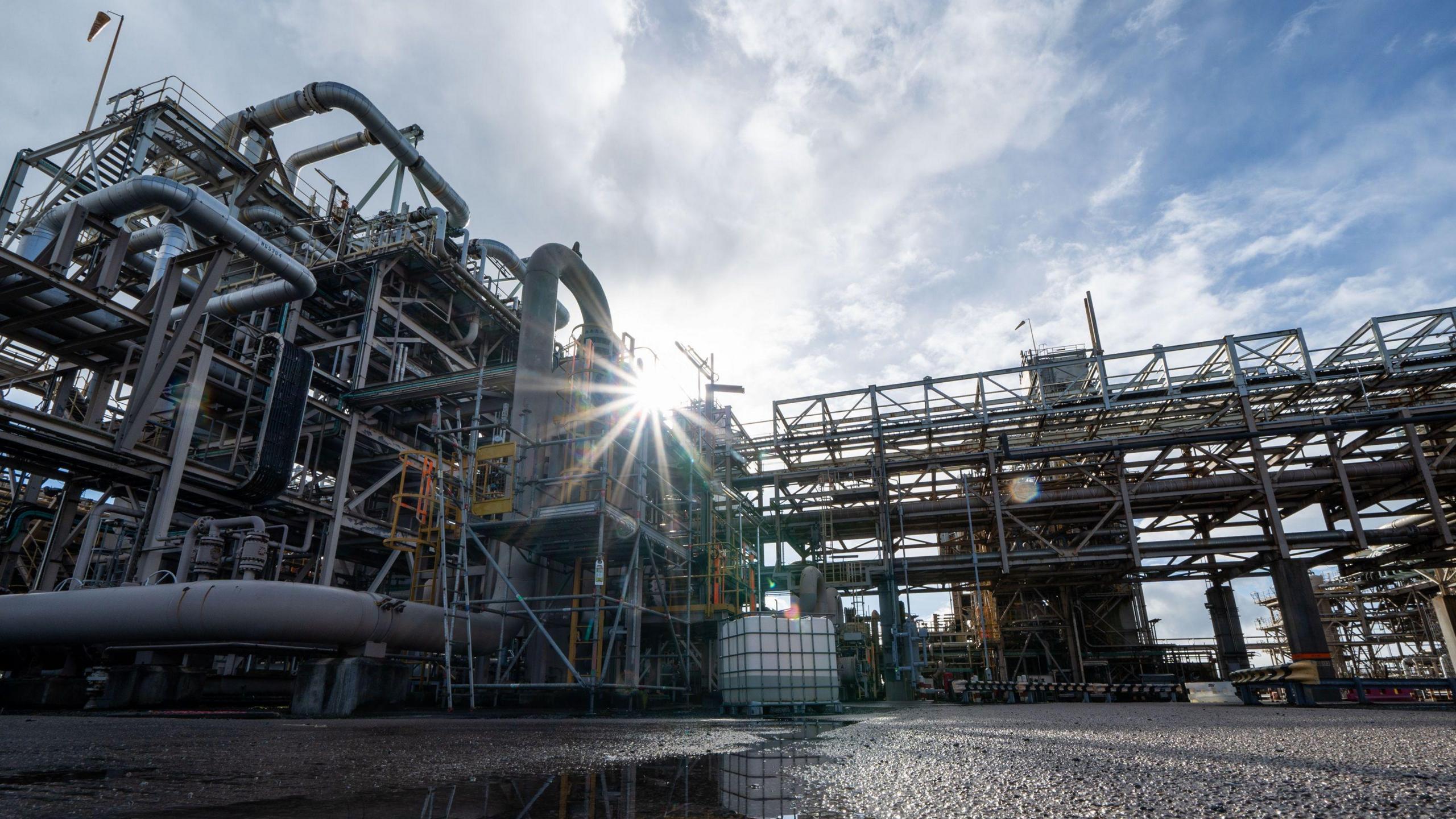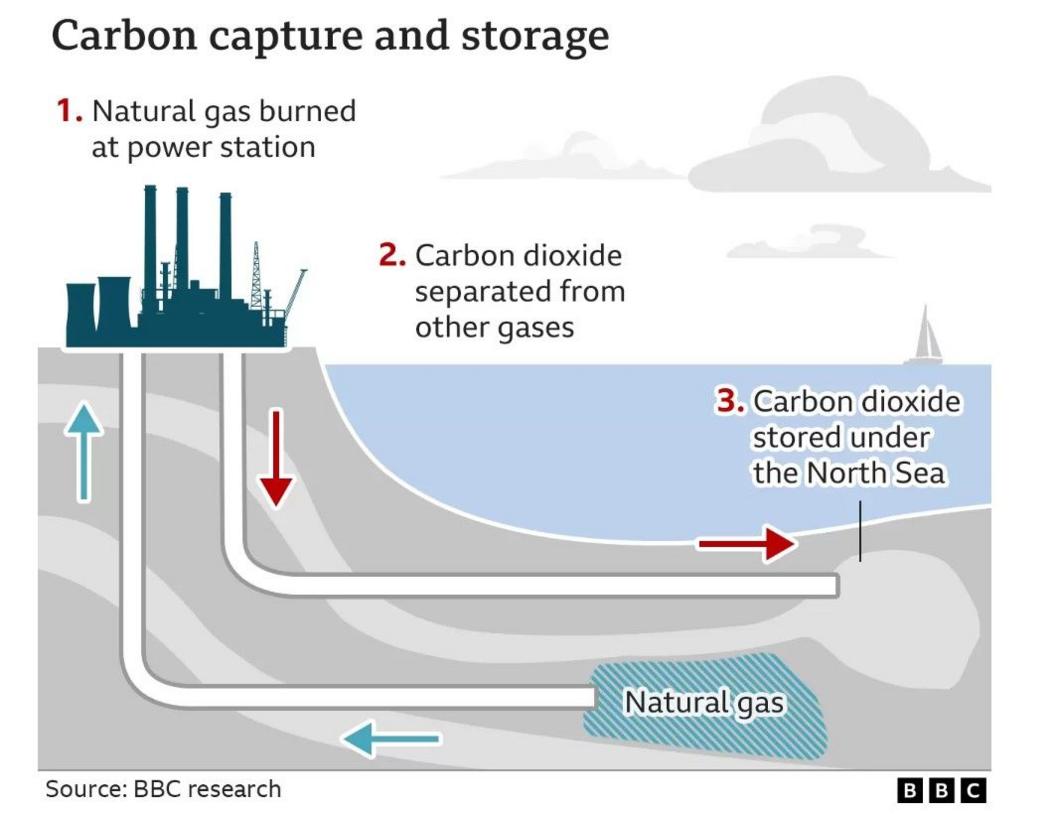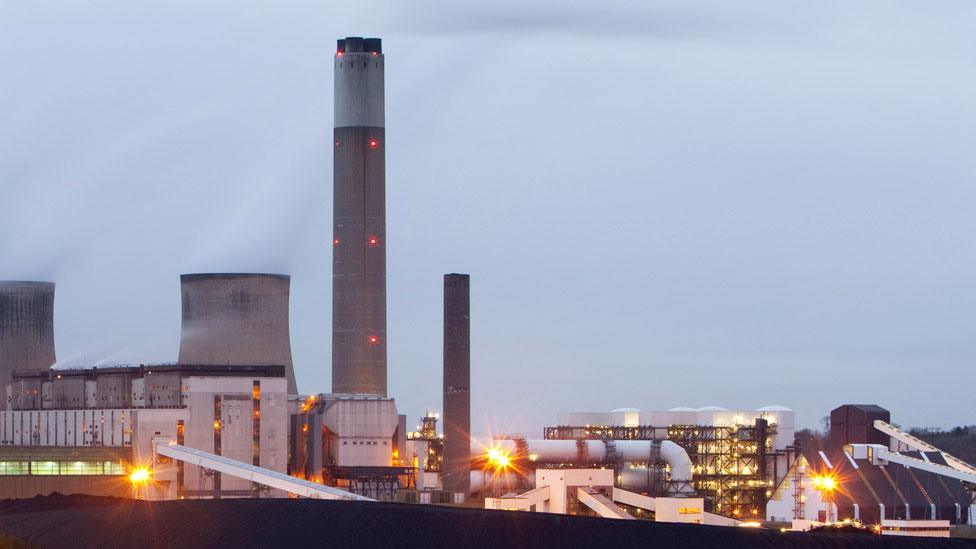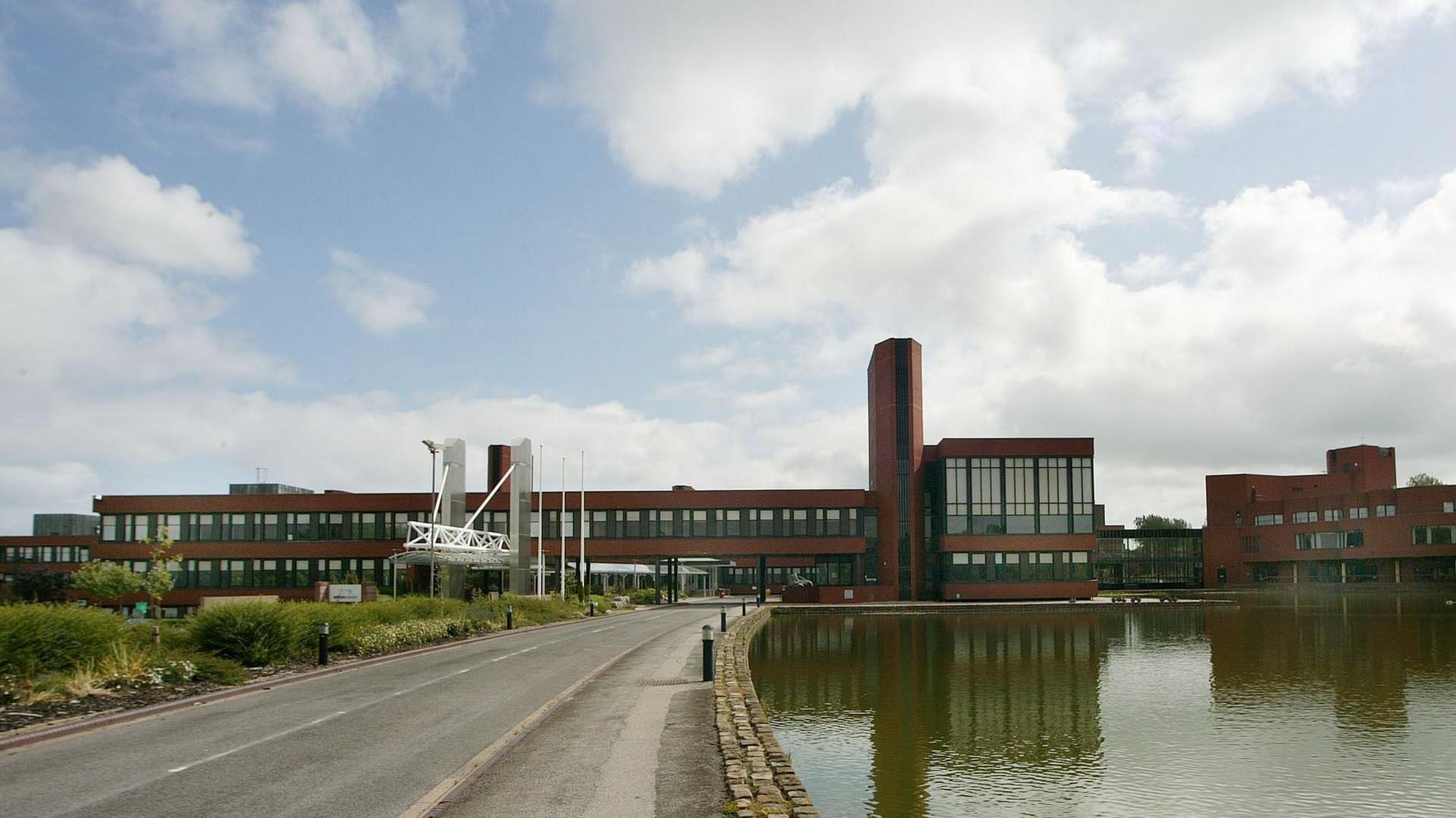Underwater rocks to be mapped for CO2 storage

The fields are off the coast from Barrow-in-Furness
- Published
Underwater gas fields off Cumbria are to be mapped for their potential to store millions of tonnes of carbon dioxide produced by industry.
The fields, about 35km (22 miles) off Barrow-in-Furness, are being assessed as part of a project which would need to be approved by the government.
It is being carried out by Spirit Energy, which has been granted a licence to explore the use of a process known as Carbon Capture and Storage (CCS).
However, it would take several years before any CO2 could be stored in the rocks there, according to Dr Tom Kettlety, an earth scientist at the University of Oxford.
The energy firm has been granted approval to look into the use of CCS in the North and South Morecambe gas fields in the East Irish Sea.
Work will be carried out in April to map the fields using ultrasonic waves sent from a ship.
It will give the company a better idea of how much CO2 - the main gas responsible for global warming - can be stored.

Carbon capture and storage facilities aim to prevent CO2 produced from industrial processes and power stations from being released into the atmosphere
No firm in the UK is currently storing CO2 in this way, Dr Kettlety said, and a "big body" of evidence would be required before the government can give approval.
The technology can help mitigate the pollution caused by industries struggling to decarbonise, such as cement production, he said.
Assuming all goes well, it will take Spirit Energy a few years to be granted final approval for the project, as well as a year or two to build the infrastructure required, Dr Kettlety told the BBC.
This means possible carbon storage in the Morecambe gas fields would still be more than five years away.
Dr Kettlety said CCS was important because “we do not have the technology to replace hydrocarbons in every aspect of our society in the next five years or even the next 20 years".
This is one of several carbon capture projects announced by the government as part of its pledge to capture and store 20-30 million tonnes of CO2 a year by 2030.
Follow BBC Cumbria on X (formerly Twitter), external, Facebook, external and Instagram, external. Send your story ideas to northeastandcumbria@bbc.co.uk.
- Published11 December 2023

- Published14 March 2024
